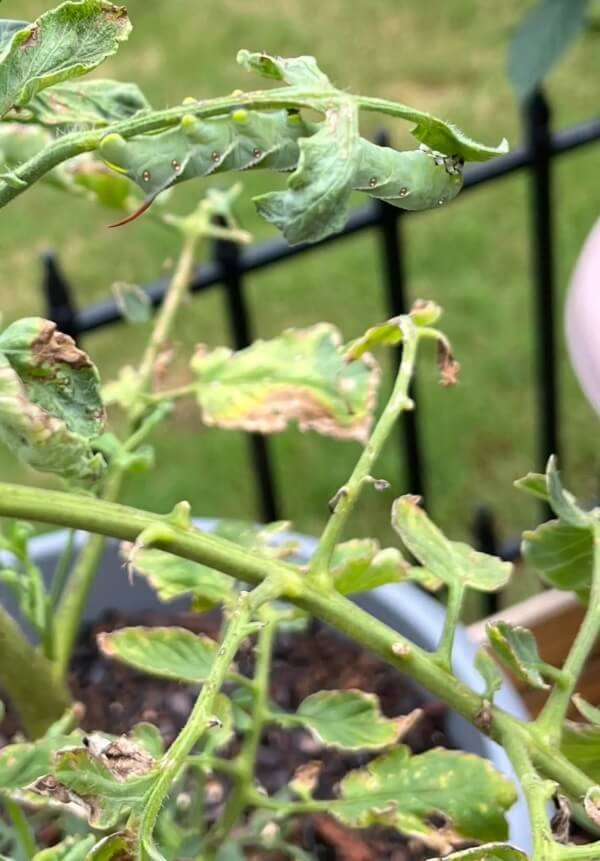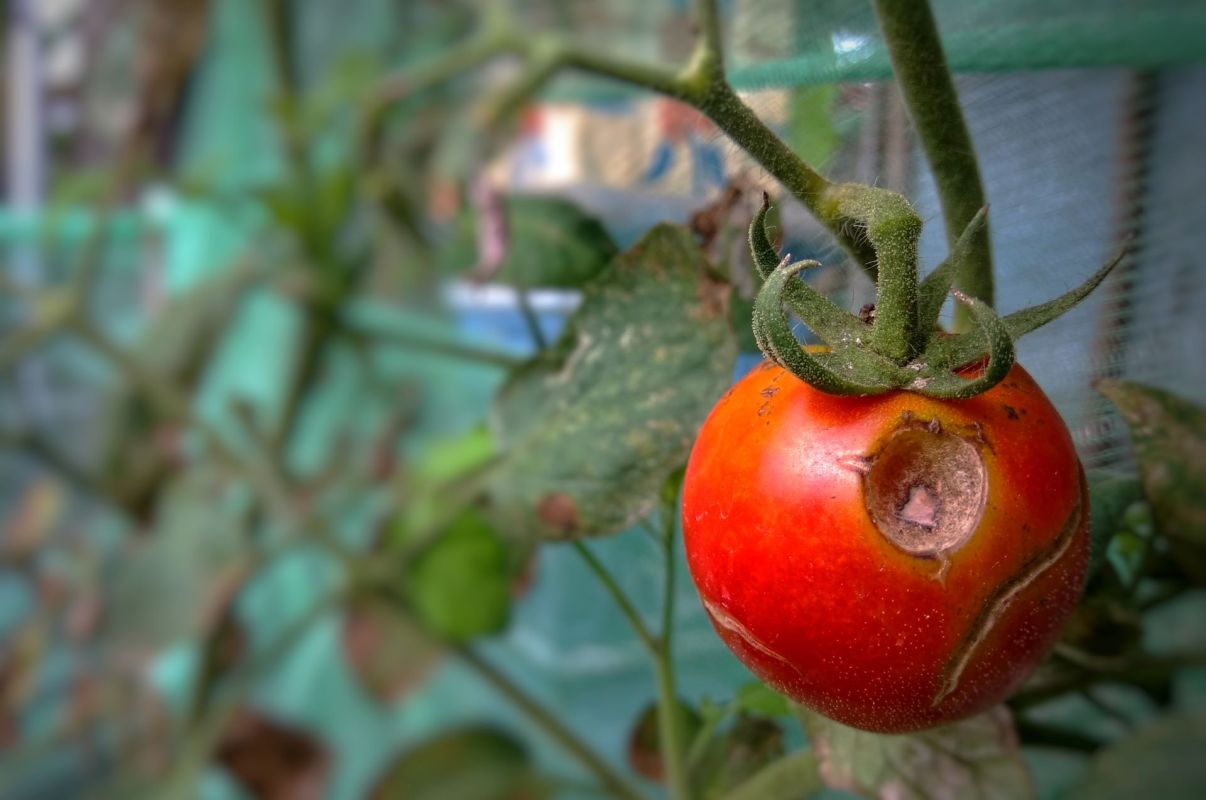The tomato hornworm is a known menace to gardeners, capable of eating up to 16 grams of food a day (four times its own body weight).
Tomatoes, eggplants, and red bell peppers are all popular with the caterpillar, which makes kitchen gardens a regular target for the voracious insect.
If you find one in your garden — as one unlucky Redditor did — then it's likely that your crops have been vastly depleted by its appetite.
In a photo posted to the r/insects subreddit, the Redditor shows the near-perfectly camouflaged pupae, which is munching on their tomato plant. "Who is this guy eating my tomato plant?" they asked other Redditors.

Yet, in spite of the damage the tomato hornworm can wreak on your vegetable patch, gardeners should still refrain from using insecticide to get rid of the pests.
Insecticides hugely contribute to the decline of important pollinating insects, like bees and butterflies. Butterflies in the EU alone saw a population decline of 50% between 1990 and 2011, and monarch butterfly populations have been devastated in the U.S. over the past 20 years, in part because of the chemicals used in industrial farming.
When the tomato hornworm matures, it transforms into the five-spotted hawk moth, which is a key pollinator for many endangered plants, like the Puerto Rican higo chumbo cactus.
The moth is robust enough to travel long distances — as much as 18 miles — over blustery island channels, which is ideal for a desert plant restricted to three offshore islands.
To protect the pollinators, Redditors have suggested other less destructive ways to rescue your plants in the comments, including planting marigolds close by or applying soapy water to the stem to prevent the caterpillar from climbing up.
The pungent essential oils emitted by marigolds make an effective repellent against insects like the hornworm.
"If you got one, you have more," one Redditor warned. "I just picked 10 or more this morning. They get big quick, but if you stay on top of removing them, it's controllable."
"They are the [No. 1] reason I lose my tomatoes," said another, adding, "You can search for them by locating their poop. They like to hide up under leaves and dense coverings a lot, but they poop so much, just look above any piles you see on stems, leaves, spider webs."
Another suggested: "Just remove them and keep them in a box with some tomato foliage. They'll cocoon up and you can protect them till hatching."
Join our free newsletter for easy tips to save more, waste less, and help yourself while helping the planet.









